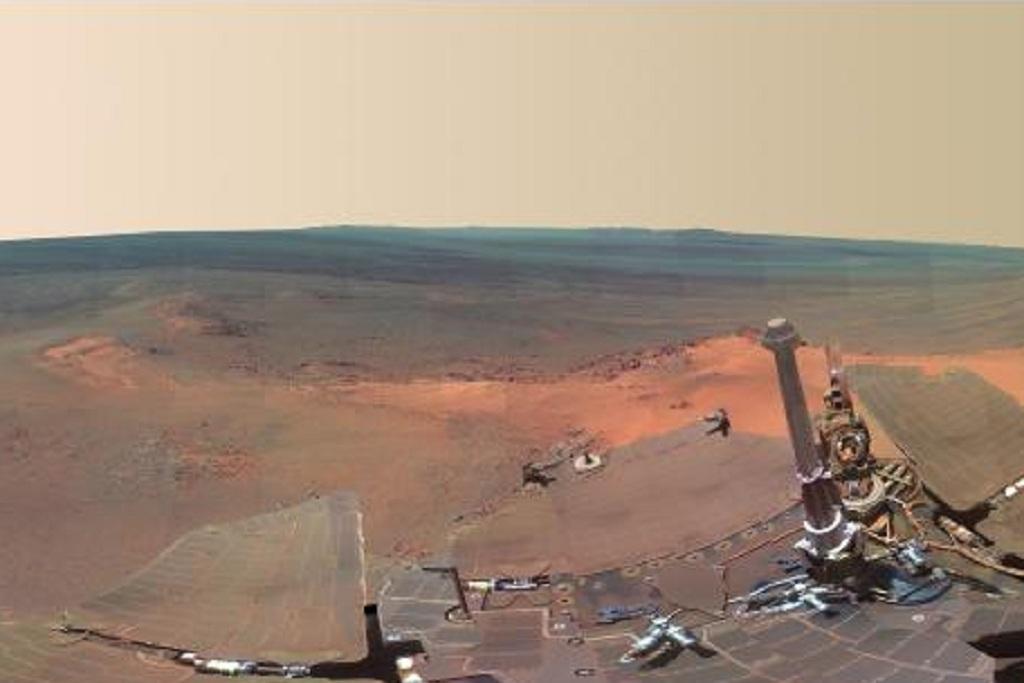Nasa finds dangerous levels of radiation on Mars (VIDEO)
Part of the Mars panorama released by NASA that combines 817 images taken by the panoramic camera on the Mars Exploration Rover Opportunity.
Astronauts may have to face serious health risks from elevated radiation levels if they travel to Mars, recent Nasa research revealed — meaning that improved technology to shield space travelers from danger would have to be developed before missions could begin.
Astronauts would have to contend with both galactic cosmic rays (fast-moving particles that can penetrate ships) as well as the charged particles that are regularly emitted by the Sun.
Read more from GlobalPost: Reanimated Arctic plants offer hope for Mars colonies
As Mars missions would take around 12 to 17 months, according to Space.com, that'd provide a lot of potential for dangerous exposure to radiation, and a potentially high cancer risk.
"We need to get there faster to reduce the impact of the galactic cosmic rays, but we need to have shielding, local shielding, on board to eliminate the effects of solar particle events," said spaceflight radiation health officer Eddie Semones to Space.com. "So it's hand in hand."
The data was collected by the Mars Curiosity Rover's "Radiation Assessment Detector," which collected information on what radiation levels inside a spacecraft would be — useful for potential space travelers.
Nasa currently has set a three percent chance of fatal cancer as an acceptable risk for astronauts, a limit that scientists fear might be surmounted by a Mars mission.
"In terms of accumulated dose, it's like getting a whole-body CT scan once every five or six days," said Cary Zeitlin of the findings, in a Nasa press release. "Understanding the radiation environment inside a spacecraft carrying humans to Mars or other deep space destinations is critical for planning future crewed missions."
Planetary scientist Geraint Jones wrote in the Guardian that one solution might be building "a highly shielded module into the design of the spacecraft, ie a storm cellar" — which astronauts could retreat inside to hide from the strongest bursts of solar radiation, following solar flares.
Our coverage reaches millions each week, but only a small fraction of listeners contribute to sustain our program. We still need 224 more people to donate $100 or $10/monthly to unlock our $67,000 match. Will you help us get there today?
